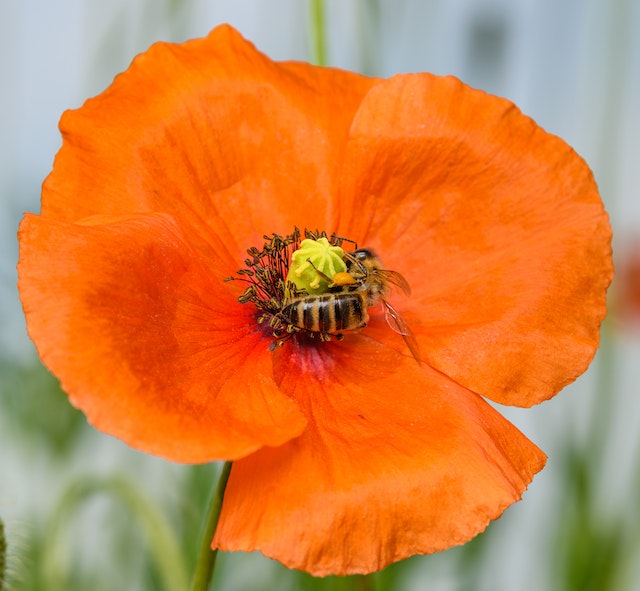Botanical Description: Latin Name: Vaccinium myrtillus
Bilberry, also known as European Blueberry, is a deciduous shrub belonging to the Ericaceae family. It is native to Europe, Asia, and North America, and is particularly prevalent in damp, acidic soils. The plant typically reaches a height of 16-24 inches, featuring elliptical, serrated leaves that are dark green on the upper surface and paler underneath. Bilberry produces small, solitary, pink-to-reddish flowers, which later develop into dark blue-black berries. The fruit is renowned for its sweet taste and is often used in culinary applications.
Disclaimer: This Materia Medica is provided for informational purposes only and should not replace professional medical advice. Please consult with a qualified healthcare practitioner or herbalist before using any herbal remedies.
Therapeutic Actions:
- Antioxidant Properties: Bilberry leaf is rich in anthocyanosides, potent antioxidants that help combat oxidative stress and free radical damage.
- Vascular Support: It is known to support the health of the vascular system, promoting proper circulation and strengthening capillary walls.
- Vision Support: Traditionally used for promoting eye health, bilberry may help alleviate conditions like eye fatigue and support night vision.
- Anti-Inflammatory: Bilberry leaf exhibits anti-inflammatory properties, making it beneficial for conditions with an inflammatory component.
Constituents:
- Anthocyanosides: Responsible for the deep purple color of the berries, these compounds are potent antioxidants.
- Flavonoids: Including quercetin and rutin, which contribute to the herb’s anti-inflammatory effects.
- Tannins: Provide astringent properties that can be beneficial for diarrhea and inflammation.
- Vitamins and Minerals: Bilberry contains vitamin C, vitamin K, and various minerals that contribute to its overall health benefits.
Traditional Uses:
- Eye Health: Bilberry has been traditionally used to enhance vision and alleviate eye fatigue. It is believed to support the health of the retina and improve night vision.
- Circulatory Support: The herb is employed to enhance circulation, particularly in conditions such as varicose veins and chronic venous insufficiency.
- Diarrhea: Due to its astringent properties, bilberry leaf may be used to help manage mild cases of diarrhea.
- Anti-Inflammatory: Bilberry is utilized to address inflammatory conditions, including arthritis and other joint issues.
Dosage and Preparation:
- Infusion: Prepare a bilberry leaf infusion by steeping 1-2 teaspoons of dried leaves in hot water for 10-15 minutes. Drink up to three times per day.
- Tincture: Take 2-4 ml of bilberry leaf tincture, two to three times daily.
- Capsules: Follow the recommended dosage on the product label, as formulations may vary.
Cautions and Considerations:
- Pregnancy and Lactation: Limited research exists on the safety of bilberry during pregnancy and lactation, so it’s advisable for pregnant or breastfeeding individuals to consult with a healthcare professional before use.
- Blood Sugar Levels: Bilberry may lower blood sugar levels, and individuals with diabetes should monitor their blood glucose closely when using bilberry supplements.
- Allergies: Those with known allergies to berries or similar plants should exercise caution and, if needed, perform an allergy test before use.
Conclusion: Bilberry leaf, with its rich history in traditional medicine, offers a spectrum of health benefits. From supporting eye health to providing antioxidant and anti-inflammatory effects, it has earned its place in herbal practices. However, individual responses to herbal remedies vary, and consultation with a qualified healthcare professional is essential to ensure its safe and effective use, particularly in specific health conditions or during pregnancy. As with any herbal remedy, moderation and informed use are key.





